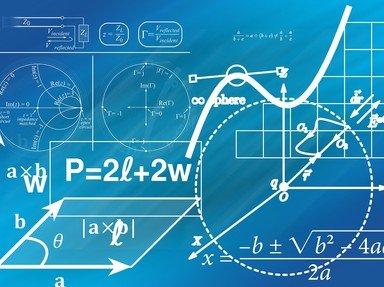Quiz Answer Key and Fun Facts
1. The unit's digit of a positive integer is the digit in the one's position. In other words, it is the last digit. For example, the unit's digit of 237 is 7. Which of the following cannot be the unit's digit of an even positive integer?
2. What is the unit's digit of the following sum: 1492 + 1776 + 2008 ?
3. What is the unit's digit of the following product: 1999 * 2007 ?
4. The first three questions were warm up exercises. Now let's consider what happens when we raise numbers to powers. For example, 3^1 = 3, 3^2 = 9, 3^3 = 27, 3^4 = 81, 3^5 = 243, and so on.
Looking at the unit's digits, we get: 3, 9, 7, 1, 3, ...
Notice that this pattern repeats itself with a cycle of length 4. So if we wanted the unit's digit of 3^90, we would need the 90th term of this sequence. Since the pattern has length 4, divide 90 by 4 and look at the remainder:
90 = 22*4 + 2
Since the remainder is 2, and the second term in the sequence 3, 9, 7, 1, 3, ... is 9, the unit's digit of 3^90 is 9.
Now it's your turn. What is the unit's digit of 3^2008?
5. Now let's consider raising 4 to powers. Suppose we raise 4 to a power that is an even positive integer. Which of the following is true about the unit's digit of the resulting number?
6. Which of the following is the unit's digit of 7^101 ?
7. Recall that in order of operations you must evaluate exponents before you can add or subtract. Keeping this in mind, what is the unit's digit of 3^15 + 4^15 ?
8. Now let's add in parentheses. What is the unit's digit of (1234 + 5678)^3 ?
9. Suppose a and b are positive integers. What is the unit's digit of 5^a + 6^b ?
10. Finally, which of the following cannot be the unit's digit of a prime number that is greater than 10?
Source: Author
rodney_indy
This quiz was reviewed by FunTrivia editor
crisw before going online.
Any errors found in FunTrivia content are routinely corrected through our feedback system.


